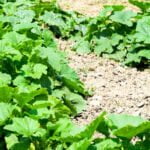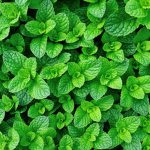Can hardwood mulch be used in vegetable gardens to promote healthy and productive plant growth? Mulch plays a crucial role in vegetable gardens by retaining moisture, suppressing weeds, and providing nutrients to the soil. However, choosing the right type of mulch is essential for maximizing these benefits. In this article, we will explore the use of hardwood mulch in vegetable gardens, focusing on its benefits, considerations, types, application methods, alternatives, best practices, and expert insights.
Using hardwood mulch in vegetable gardens offers several advantages. Its ability to retain moisture can help regulate soil temperature and reduce water evaporation during hot weather. Additionally, it suppresses weed growth by creating a barrier that inhibits weed germination and growth.
As hardwood mulch decomposes, it also adds valuable nutrients to the soil that benefit plant growth. However, there are specific factors to consider when using hardwood mulch in vegetable gardens such as its impact on soil pH and the risk of nitrogen depletion.
When considering hardwood mulch for your vegetable garden, it’s important to understand the different types available such as oak, maple, and hickory. Each type has unique properties that may affect its suitability for use in a vegetable garden. Proper application of hardwood mulch is also critical for its effectiveness.
This includes determining the ideal thickness and frequency of application to achieve maximum benefits without negatively impacting plant health. Finally, it’s essential to consider alternative mulching options such as straw or compost and compare their benefits and drawbacks to hardwood mulch.
Overall, understanding how to effectively use hardwood mulch in a vegetable garden requires careful consideration of various factors. By examining its benefits, considerations for use in vegetable gardens.
Benefits of Hardwood Mulch
Hardwood mulch offers several benefits when used in vegetable gardens, making it a popular choice among gardeners. Here are some of the advantages of using hardwood mulch:
1. Retains Moisture: Hardwood mulch creates a protective layer on the soil, reducing water evaporation and helping to retain moisture. This can be particularly beneficial during hot and dry periods, as it helps to ensure that the plants have a consistent water supply.
2. Suppresses Weeds: A major benefit of hardwood mulch is its ability to suppress weed growth. By creating a barrier over the soil, hardwood mulch prevents weed seeds from germinating and competing with the vegetables for nutrients and space.
3. Provides Nutrients: As hardwood mulch decomposes, it gradually releases nutrients into the soil, providing an organic source of nutrition for vegetable plants. This natural process enriches the soil and promotes healthy plant growth without the need for synthetic fertilizers.
Overall, hardwood mulch can enhance the overall health and productivity of your vegetable garden by creating a favorable environment for plant growth.
In addition to these benefits, using hardwood mulch in vegetable gardens can also improve soil structure by preventing erosion, reducing compaction, and promoting microbial activity. These factors contribute to healthier, more resilient soils that support vigorous plant growth and higher yields.
Considerations for Vegetable Gardens
Hardwood mulch can be a valuable addition to vegetable gardens, providing numerous benefits such as moisture retention, weed suppression, and soil enrichment. However, when considering the use of hardwood mulch in vegetable gardens, there are specific factors to take into account to ensure that it is used effectively and does not have any adverse effects on plant growth.
One important consideration when using hardwood mulch in vegetable gardens is its potential impact on soil pH. Hardwood mulch tends to have a slightly acidic pH, which can gradually lower the overall pH of the soil over time. While this may be beneficial for acid-loving plants, it could be detrimental to vegetables that prefer neutral or slightly alkaline conditions. Regular monitoring of the soil pH and making adjustments as needed can help mitigate any negative effects.
Another factor to be mindful of is the risk of nitrogen depletion. As hardwood mulch decomposes, it consumes nitrogen from the soil in the process. This may temporarily reduce the availability of nitrogen for plant uptake, potentially impacting the growth and productivity of vegetable crops. To counteract this, it is advisable to apply a nitrogen-rich fertilizer before mulching or periodically top-dress with additional nitrogen throughout the growing season.
Lastly, choosing the right type of hardwood mulch for a vegetable garden is crucial. Certain hardwood species like oak and hickory contain higher levels of tannins which can inhibit plant growth if used in excessive amounts. On the other hand, maple and birch are generally preferred choices for vegetable gardens due to their lower tannin content and quicker decomposition rate.
| Factor | Consideration |
|---|---|
| Soil pH | Hardwood mulch has a slightly acidic pH and can lower soil pH over time |
| Nitrogen Depletion | Decomposing hardwood mulch can deplete nitrogen from the soil; supplemental nitrogen may be necessary |
| Hardwood Species | Different hardwood species have varying tannin levels and decomposition rates; choose species with lower tannin content such as maple or birch |
Taking these considerations into account when using hardwood mulch in a vegetable garden can help maximize its benefits while minimizing any potential drawbacks. By being mindful of the impact on soil pH, managing nitrogen levels, and selecting appropriate hardwood species, gardeners can create an optimal environment for their vegetable crops to thrive alongside their chosen mulching material.
Types of Hardwood Mulch
When it comes to using hardwood mulch in vegetable gardens, it’s essential to consider the different types available and how their properties may impact their suitability for use. Hardwood mulch is made from the bark, wood, and leaves of hardwood trees such as oak, maple, and hickory. Each type of hardwood mulch has distinct characteristics that can significantly affect its performance in a vegetable garden.
Oak Mulch
Oak mulch is known for its durability and ability to decompose slowly, making it an excellent choice for long-term use in vegetable gardens. Its dense nature allows oak mulch to retain moisture well, which can be beneficial for plants during dry periods. However, due to its slow decomposition rate, oak mulch may not provide immediate nutrients to the soil.
Maple Mulch
Maple mulch is lighter and finer in texture compared to oak mulch. It decomposes relatively quickly, releasing nutrients into the soil faster than other hardwood mulches. This makes it a suitable option for vegetable gardens where a quicker nutrient release is desired. However, its lighter texture
Hickory Mulch
Hickory mulch is known for its rich color and aromatic scent. It has a moderate decomposition rate and provides good moisture retention for plant roots. Hickory mulch contains tannins which may impact soil pH over time. Therefore, it’s important to monitor pH levels when using hickory mulch in vegetable gardens.
Understanding the properties of different types of hardwood mulch
How to Use Hardwood Mulch
When using hardwood mulch in a vegetable garden, it is important to follow proper application techniques to ensure the best results for your plants. Here are some step-by-step instructions on how to properly apply hardwood mulch:
1. Prepare the Soil: Before applying hardwood mulch, make sure to prep the soil by removing any weeds and debris. It is also beneficial to add a layer of compost or organic fertilizer to provide extra nutrients for your plants.
2. Apply the Mulch: Once the soil is prepared, spread a layer of hardwood mulch around the base of your vegetable plants, making sure to leave a gap between the trunk or stem and the mulch. The ideal thickness for hardwood mulch in a vegetable garden is 2-4 inches.
3. Reapply as Needed: Throughout the growing season, monitor the condition of the mulch and reapply it as needed. As hardwood mulch decomposes, it will need to be replenished to maintain its benefits for the soil and plants.
In addition to these steps, it is important to consider some specific factors when using hardwood mulch in a vegetable garden. For example, while hardwood mulch can retain moisture and suppress weeds, it may also impact the pH of the soil over time due to its slow decomposition rate. Additionally, there is a risk of nitrogen depletion as hardwood mulch breaks down, so it is important to monitor soil nutrient levels and add supplemental fertilizer if necessary.
Overall, with proper application and consideration of these factors, hardwood mulch can be used effectively in vegetable gardens to promote plant health and productivity.
Alternatives to Hardwood Mulch
When considering mulching options for vegetable gardens, hardwood mulch is a popular choice due to its ability to retain moisture, suppress weeds, and provide nutrients to the soil as it decomposes. However, gardeners may wonder if hardwood mulch can be used in vegetable gardens without causing any negative effects on the plants. The good news is that when used correctly, hardwood mulch can indeed be a beneficial addition to vegetable gardens.
In addition to hardwood mulch, there are several alternative mulching options that can be used in vegetable gardens. One of these options is straw, which is an excellent choice for insulating soil, suppressing weed growth, and retaining moisture.
Grass clippings are another alternative that can provide a free source of mulch while also adding nitrogen back into the soil as they decompose. Compost is also an effective option for mulching vegetable gardens as it enhances soil fertility and structure while suppressing weed growth.
Each alternative mulching option has its own set of benefits and drawbacks compared to hardwood mulch. For example, while straw provides excellent insulation and moisture retention, it may contain weed seeds that can lead to increased weed problems in the garden. Grass clippings provide nitrogen back into the soil but should be used in thin layers to prevent matting and mold growth. Compost adds nutrients to the soil but requires regular replenishment as it decomposes.
| Mulching Option | Benefits | Drawbacks |
|---|---|---|
| Straw | Insulation, Moisture retention | Weed seeds |
| Grass Clippings | Nitrogen source | Potential matting and mold growth |
| Compost | Nutrients for soil | Requires regular replenishment |
Best Practices and Tips
Preventing Mold and Fungus Growth
One of the potential drawbacks of using hardwood mulch in vegetable gardens is the risk of mold and fungus growth, especially in moist and humid conditions. To prevent this issue, it is important to ensure that the mulch is not packed too tightly around the base of the plants, as this can trap moisture and create an ideal environment for mold and fungus to thrive.
Instead, apply the hardwood mulch loosely around the plants to allow for proper air circulation and drainage.
In addition, regularly turning over the mulch with a rake or garden fork can help aerate it and reduce the likelihood of mold and fungus growth. This simple practice can also prevent the formation of a crust on the surface of the mulch, allowing water to penetrate more easily into the soil below.
Avoiding Common Mistakes
When using hardwood mulch in vegetable gardens, it is important to avoid common mistakes that could hinder its effectiveness. One common error is applying mulch that is too thick around the plants, which can lead to reduced oxygen levels in the soil and inhibit root growth. The ideal thickness for hardwood mulch in a vegetable garden is typically between 2-4 inches.
Another mistake to avoid is placing the mulch directly against plant stems or trunks, as this can create favorable conditions for pests and diseases to attack the plants. Leave a small gap between the mulch and plant stems to promote airflow and discourage harmful organisms from taking hold.
Final Thoughts
By following these best practices and tips for using hardwood mulch in vegetable gardens, gardeners can maximize its benefits while minimizing potential drawbacks. From preventing mold and fungus growth to avoiding common mistakes, being mindful of how hardwood mulch interacts with vegetable plants can result in thriving garden beds filled with healthy produce. With proper care and attention, hardwood mulch can indeed be used effectively in vegetable gardens to bolster plant health and yield impressive harvests.
Case Studies and Expert Advice
In conclusion, the use of hardwood mulch in vegetable gardens can provide numerous benefits for gardeners looking to improve the health and productivity of their plants. The ability of hardwood mulch to retain moisture, suppress weeds, and provide nutrients to the soil as it decomposes makes it a valuable addition to any vegetable garden.
However, it is important for gardeners to consider specific factors when using hardwood mulch in their gardens, such as its potential impact on soil pH and the risk of nitrogen depletion.
It is essential for gardeners to carefully select the type of hardwood mulch that will best suit their individual gardening needs. Different types of hardwood mulch, such as oak, maple, and hickory, have properties that can affect their suitability for use in vegetable gardens. Additionally, properly applying hardwood mulch by following step-by-step instructions on ideal thickness and frequency of application can maximize its benefits while minimizing potential drawbacks.
While hardwood mulch is a popular option for vegetable gardens, there are alternative mulching options such as straw, grass clippings, and compost that may also be suitable depending on the specific needs of the garden. Gardeners should weigh the benefits and drawbacks of each option before making a decision. Best practices and tips for effectively using hardwood mulch in vegetable gardens include preventing mold and fungus growth and avoiding common mistakes.
By considering these factors and seeking expert advice from gardening professionals or real-life examples of successful vegetable gardens using hardwood mulch, gardeners can make informed decisions about whether or not to incorporate hardwood mulch into their vegetable gardens. With proper consideration and application techniques, hardwood mulch can indeed be used successfully in vegetable gardens to enhance plant health and yield.
Frequently Asked Questions
Is Hardwood Mulch Safe for Vegetable Gardens?
Hardwood mulch can be safe for vegetable gardens as long as it is not treated with any harmful chemicals. It can help retain moisture, suppress weeds, and enrich the soil as it breaks down.
What Kind of Mulch Can I Use in My Vegetable Garden?
When choosing mulch for your vegetable garden, look for organic options such as straw, grass clippings, leaves, or compost. These types of mulch can provide nutrients to the soil as they decompose.
Is Black Mulch Safe for Vegetable Garden?
Black mulch is generally considered safe for vegetable gardens as long as it is made from natural materials without any toxic dyes or chemicals. It can help warm the soil and retain moisture, benefiting your vegetables.

If you’re looking to get into vegetable gardening, or are just looking for some tips on how to make your current garden better, then you’ve come to the right place! My name is Ethel and I have been gardening for years. In this blog, I’m going to share with you some of my best tips on how to create a successful vegetable garden.





